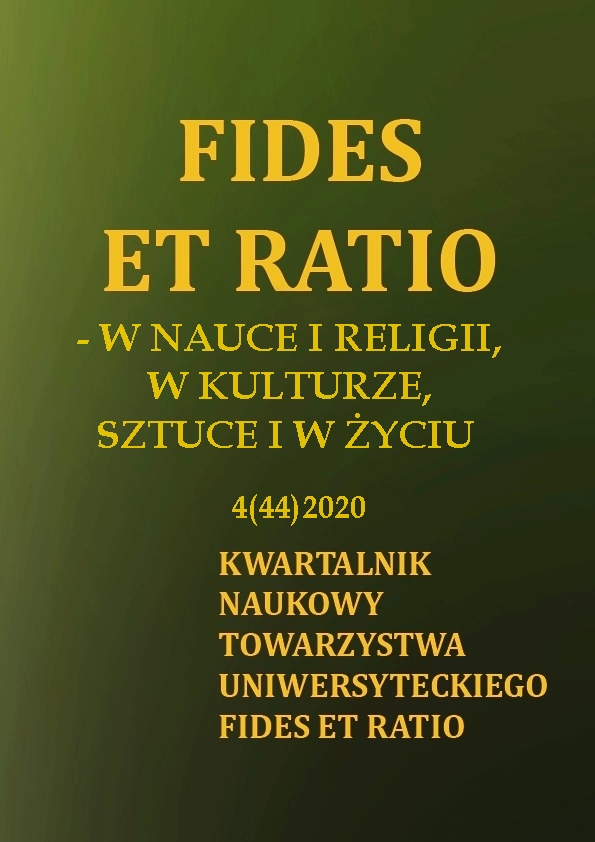Abstract
Suffering, which has been inseparable from human life since the dawn of time, was enduredby Cardinal Stefan Wyszynski and became a necessary element on the path of his personalsanctification. He experienced his mother's death, war, hunger, serious illness and imprisonment. Hesuffered together with the sick, the injured and the dying. As an interrex, head of the Church in Polandand a patriot, he suffered together with the enslaved nation. His personal experience, studies andtheological and philosophical reflections gave rise to Wyszynski’s social teaching that offers apersonalistic vision of the human being and his dignity, contains his original approach to the affairs ofthe nation and reveals his deep faith. His teaching also addresses suffering. Primate Wyszynskitreated all people as neighbours regardless of their religious affiliation or physical condition. For him,someone’s disability was no obstacle to recognizing the perfection of his human nature. The Primatetaught that a nation is similar to a human being. Likewise, a nation has its consciousness, will,knowledge, self-preservation, flaws, desires, and, it experiences suffering. Being aware of hisresponsibility as a primate, Cardinal Wyszynski was concerned about the fate of every Pole, from theone conceived in his or her mother’s womb to the one dying in old age. He was aware of the hardshipsvisited upon a worker, a doctor, a lawyer, a teacher or an artist. The Primate's thought is worthdrawing on, especially today, when the world order is unstable, and the scope of human suffering isexpanding despite scientific discoveries and assurances of civilizational progress.
